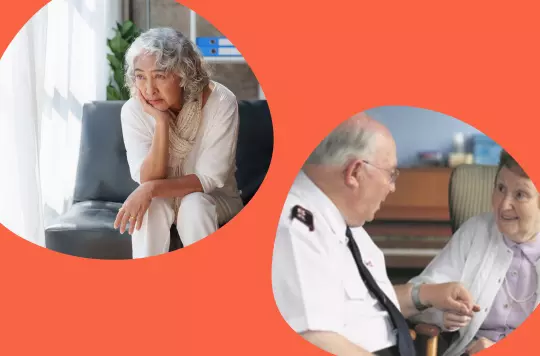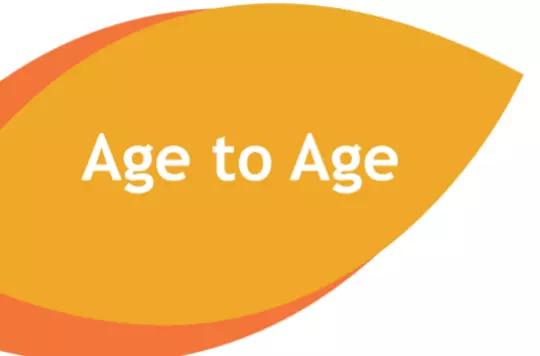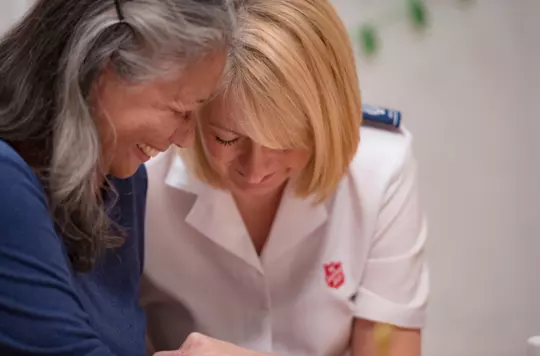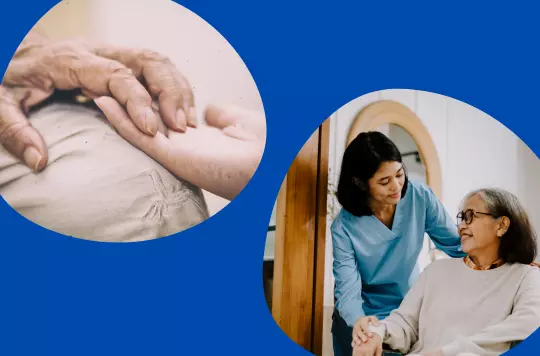Since its formation, The Salvation Army has been called to support and care for those in need, using Williams Booth’s term ‘heart to God and hand to man’. The Salvation Army’s missional statement is to ‘Love God and Love Others’, and therefore there will be times when we are called to help and protect those in our care.
In this reflection we will consider scriptural truths that help us understand what Scripture has to say about carers and those who are caregivers to others.
Throughout the Bible we hear of the love of God to his children, shown through creation, redemption, and the promise of eternity through the sacrificial death of Christ. God is a God of ‘care-giving’ to his children, and this example is one that followers of Jesus Christ try to live out daily. We will acknowledge the joy and peace, but also the pain that comes to those who are giving of themselves in caring for others.
In Matthew 5:9 Jesus says, ‘Blessed are the peacemakers, for they will be called children of God.’ Often we may consider those who are peacemakers in the sense of bringing peace in a hostile land; yet we could apply these words as God also blessing the caregivers. Caregivers are the ones bringing peace to their loved ones – peace of security, peace of safety and peace of mind knowing that someone else has your best interests at heart.
Tia Walker, author of The Inspired Caregivers says ‘Caregiving often calls us to lean into love we didn’t know possible.’ Christian caregivers often speak of leaning into God’s love to give them strength whilst they care for loved ones. Tia also goes on to to say, ‘To care for those who once cared for us is one of the highest honours.’ Caring is an honour but is also hard work and comes at a cost. The writer of Hebrews reminds us that ‘God is not unjust. He will not forget how hard you have worked for him and how you have shown your love to him by caring for other believers, as you still do.’ (Hebrews 6:10 NLT)
Caregiving is about literally giving of oneself for the care and wellbeing of another person. It is about seeing someone else’s needs as important, or on occasion more important, than your own needs.
Jesus himself said: ‘My command is this: love each other as I have loved you. Greater love has no one than this: to lay down one’s life for one’s friends’ (John 15:12,13). Jesus was setting the precursor to his own death and this is a reminder that Jesus does understand what is at stake when you give of yourself in such a way that changes the life of another person.
In considering the many varieties of caregivers, from those offering full-time live-in care to those who have responsibility of a loved one living in a care facility, Scripture reminds us of the responsibility that is given to the carer. No better example is found in Matthew 25:34-36 when Jesus is teaching about the sheep and the goats:
‘Then the King will say to those on his right, “Come, you who are blessed by my Father; take your inheritance, the kingdom prepared for you since the creation of the world. For I was hungry and you gave me something to eat, I was thirsty and you gave me something to drink, I was a stranger and you invited me in, I needed clothes and you clothed me, I was sick and you looked after me, I was in prison and you came to visit me.’
In reading these words as the carer of an older person, for example, we are reminded that this will be a lived experience, day in day out. For someone caring for a person living with dementia or a person experiencing frailty, palliative or end of life care – these words bring the reminder that Jesus understood what loving caregiving looked like. We are not saying for one moment that prison can be equated to a care facility! However, there are some older people who feel that they are ‘locked away’ once they moved into a care/nursing home, and the reminder of the importance of visitation and a link with the outside world that is no longer visible to the person in care, is necessary to the mental and physical health of a person. Pastoral visitation is important and critical to the wellbeing of someone in care.
There will be some carers who live in denial about their loved one’s need of a certain level of care. This may be due to fear of what that might mean, a diagnosis, or the feeling of being out of control if they don’t have the capacity to care for them in their own home. We are also aware that there will be times when a carer feels they can no longer care for their loved one as they have been doing due to their own mental health, physical health or personal needs. This can be very distressing for the caregiver, and acknowledgement of this is vitally important.
What does Scripture say to us in these situations? If we look again to the words of Jesus, we find words of comfort and compassion found in Matthew 11:28 where Jesus beckons the tired and worn out, saying: ‘Come to me, all you who are weary and burdened, and I will give you rest’, acknowledging that caring can be physically and mentally tiring and draining. Jesus goes on to talk about lifting the burdens that can weigh heavy in verses 29 and 30: ‘Take my yoke upon you and learn from me, for I am gentle and humble in heart, and you will find rest for your souls. For my yoke is easy and my burden is light.’
These words of Jesus remind us that there are times in life when we have to remove the yoke that has become a burden, whether that be caregiving or some other responsibility, and replace it with the yoke of Jesus Christ. This, however, can be very difficult if people are living as carers without a support network around them, and that is where the Church comes into play. We are called as God’s people to bear with one another in love (Ephesians 4:2). Surely ‘bearing with’ means walking alongside another person, trying to understand the depth of uncertainty and responsibility that caring can bring, and loving as Jesus loves us. ‘As I have loved you, so you just love one another’ (John 13:34).
Many carers may feel that their identify has been removed from them, because their time, space and energy is completely taken up with caring or their mental capacity is less due to the weight of responsibility in ensuring good care for their loved one. Jesus reminds us in Scripture that he came to give us life in all its fullness (John 10:10), and that promise is for the caregivers also – no one is exempt. So a caregiver will still be a husband, wife, son, daughter, or friend. They have an identity that is bigger than being a carer. The Church needs to offer whatever support can be given to ensure that caregivers can keep their identity, and in doing so, may support their mental wellbeing.
The Acts church was the first formal church of its kind, and we read in Acts 2:44 that ‘All the believers were together and had everything in common.’ It can be very difficult to have ‘everything in common’ when we all live very different lives and our lived experiences are different from someone else’s. So just the acknowledgement to a caregiver that someone sees them, someone is interested in their wellbeing and not just the wellbeing of the one needing the care can make the carer feel as though they are part of the Church family. We have to be careful not to forget the carers who have given themselves for another’s wellbeing, often at the expense of their own wellbeing. The carer’s own self-care may therefore be low on their list of priorities.
Taking the example of ‘having everything in common’ comes back to where we started this reflection, with the overriding emphasis on love: loving kindness, loving compassion, loving words and actions. The Salvation Army’s mission is to ‘Love God, Love Others’. This theological reflection begins and ends in love. The love God has shown us means that we love others, and we remember others. We remember that tomorrow our own lives may change in the blink of an eye, and we may be the one who becomes a caregiver. Surely we would want to be seen, want to be loved and want to be understood by our church family.
Caregiving can be both joyful and painful. The person being cared for may be thankful for the care or difficult to manage due to a number of other factors. The variety of care is wide and vast. The journey may be long and painful or short and shocking, or somewhere in between. In all things, we pray for those who care for others and offer this blessing for every person who is a caregiver today:
‘The Lord bless you and keep you; the Lord make his face shine on you and be gracious to you; the Lord turn his face towards you and give you peace’ (Numbers 6:24–26).









